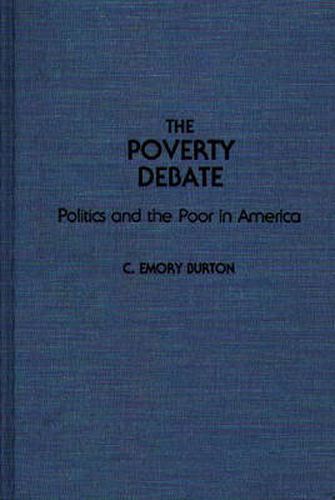Readings Newsletter
Become a Readings Member to make your shopping experience even easier.
Sign in or sign up for free!
You’re not far away from qualifying for FREE standard shipping within Australia
You’ve qualified for FREE standard shipping within Australia
The cart is loading…






A review of research and arguments concerning poverty in the United States, citing and summarising the views of influential conservative thinkers and providing evidence to defeat their arguments. While conservative writers have traditionally presented the poor as lazy and unfortunate offshoots of a generally prosperous nation, Burton aims to demonstrate that poverty in America is widespread and that it is not caused by lack of ambition. The text begins with an overview of the extent of poverty in America, including an examination of how poverty is defined and measured. Burton then analyses the cultural characteristics of the poor, the homeless, and the underclass. He then turns his attention to welfare, workfare, and the generation of jobs. A final set of chapters probes more deeply into the political dimension of poverty and the role of government in alleviating it. Throughout the study, Burton refers to numerous influential works by conservative authors, and he addresses their shortcomings. An extensive bibliography adds to the usefulness of the text.
$9.00 standard shipping within Australia
FREE standard shipping within Australia for orders over $100.00
Express & International shipping calculated at checkout
A review of research and arguments concerning poverty in the United States, citing and summarising the views of influential conservative thinkers and providing evidence to defeat their arguments. While conservative writers have traditionally presented the poor as lazy and unfortunate offshoots of a generally prosperous nation, Burton aims to demonstrate that poverty in America is widespread and that it is not caused by lack of ambition. The text begins with an overview of the extent of poverty in America, including an examination of how poverty is defined and measured. Burton then analyses the cultural characteristics of the poor, the homeless, and the underclass. He then turns his attention to welfare, workfare, and the generation of jobs. A final set of chapters probes more deeply into the political dimension of poverty and the role of government in alleviating it. Throughout the study, Burton refers to numerous influential works by conservative authors, and he addresses their shortcomings. An extensive bibliography adds to the usefulness of the text.